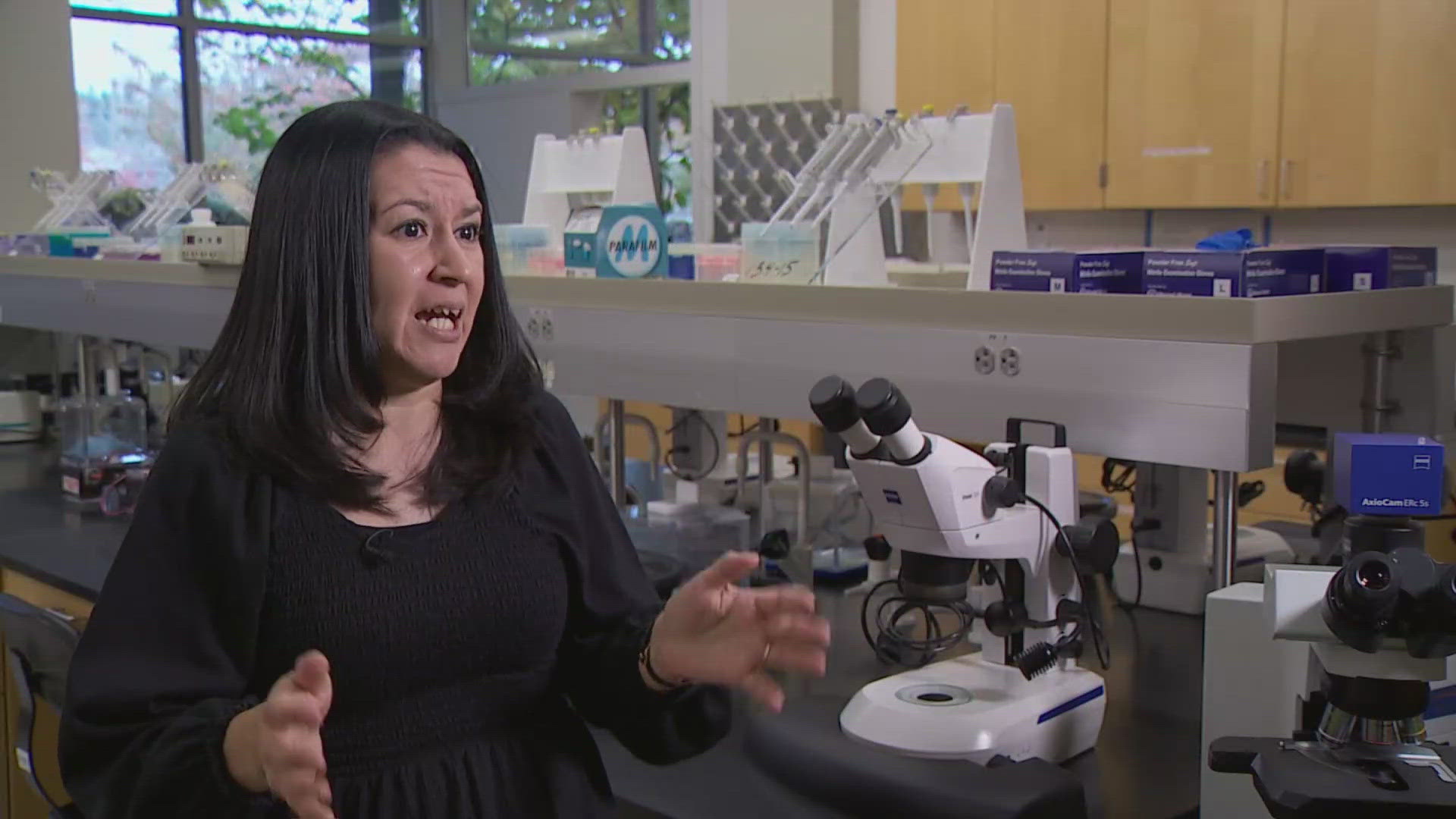SEATTLE — Washington state vendors are required to properly label salmon, but a new study out of Seattle Pacific University found this isn't always happening.
Around one-third of salmon sampled from local sushi shops were marked as wild, but were actually farm-raised, according to researchers.
"One of the most surprising pieces of information that we learned from this study was the wild-to-farm mislabeling rate," SPU Biology professor Tracie Delgado said.
Researchers tested salmon samples from 67 grocery stores and 52 local sushi shops. According to the study, they found 32.3% of sushi restaurant samples had farmed salmon substituted in for vendor-claimed wild salmon, though it's unclear whether the mislabeling happened at the restaurant's level or further up the distribution chain. No grocery store samples had that issue, though 11.1% of grocery store salmon was an incorrect species. Thirty-eight percent of restaurant samples were substituted with the wrong species.
"We priced the average price-per-pound for different types of farm salmon," Delgado said. "Every single time the sushi restaurant gave you a mislabeled sample it led to the customer losing money."
Washington state passed a law against advertising the wrong type of salmon after a study by a conservation nonprofit revealed mass mislabeling. The Department of Justice has also prosecuted fish labeling in the state, with offenders facing hefty fines or prison time.
Researchers said the salmon substitutions they uncovered can hurt customers financially, as they're given a cheaper market-priced fish. They said it's a call for more enforcement.
"Consumers want to know, are we losing money in a way that hits my pocketbook?" Delgado said. "But also, how does this affect our ecosystem and conservation of salmon? If we are saying a certain supply and stock looks like it is at a high level but it's really not due to consumer demand mislabeling, this could affect [discussions about] conservation of these populations."

